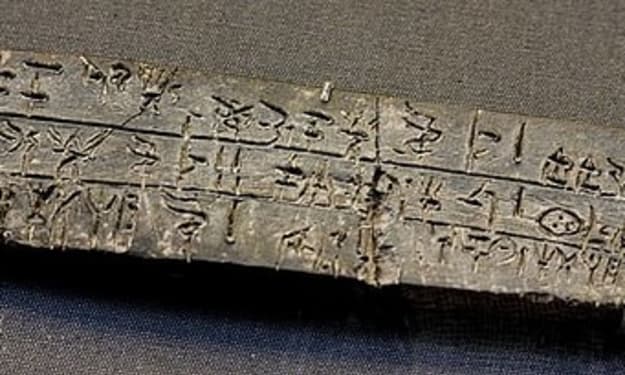The King Who Isolated Infants to Determine Which Language Adam and Eve Originally Spoke
The Controversial Infant Isolation Experiment

In the 13th century, Holy Roman Emperor Frederick II conducted a daring experiment to discover the original language of humanity. Frederick believed that if infants were raised without ever hearing spoken language, they would naturally begin to speak the language given to Adam and Eve by God. To test this theory, he instructed caregivers to provide for the infants' basic physical needs but to avoid speaking to or emotionally interacting with them. Frederick's goal was to see if the children would eventually speak Hebrew, Greek, Latin, or Arabic on their own.
Frederick II, often referred to as 'Stupor Mundi' or 'the wonder of the world,' was a man of vast intellectual curiosity. He was known for his interest in science and the arts, which was unusual for rulers of his time. Frederick’s court in Palermo was a hub of cultural and scientific activity, attracting scholars, poets, and scientists from all over Europe and the Mediterranean. He supported the arts and sciences with great enthusiasm, creating a dynamic intellectual environment that contributed to the cultural flourishing of the late medieval period.
An important figure who documented Frederick's controversial experiment was an Italian monk named Salimbene di Adam. Salimbene was highly critical of Frederick and his methods. He recorded the details of the emperor's experiment in his chronicles, portraying Frederick's actions as cruel and inhumane. According to Salimbene, the emperor instructed caregivers to suckle, bathe, and wash the infants but strictly forbade them from speaking to or engaging with the children in any way. The monk's account of the experiment reflected his negative view of Frederick, comparing the emperor’s actions to biblical plagues and highlighting the disastrous outcomes.
The emperor’s experiment, however, ended in tragedy. Deprived of emotional and social interaction, the infants did not develop any language and eventually died. This heartbreaking outcome highlighted the vital role of love and social connections in human development. The experiment underscored the fact that human beings need emotional care and social interaction to survive and thrive.
Despite the dark nature of this experiment, Frederick II's reign was also marked by significant advancements in various fields. He made notable contributions to biology and environmental science, establishing wildlife preserves and writing extensively on falconry. His scientific endeavors extended beyond linguistics and culture, reflecting his broad intellectual interests.
Frederick was also known for his rational approach to governance. He implemented legal reforms that emphasized reason and evidence over traditional customs. For example, he replaced trial by combat with evidence-based legal procedures. He believed strongly in education and founded the University of Naples, which became a leading center of learning. These reforms and initiatives demonstrated his commitment to using reason and knowledge to improve society.
Frederick's interactions with the Muslim world further showcased his progressive approach to leadership. His court was a melting pot of cultures, integrating diverse influences that significantly shaped the intellectual landscape of Europe. He commissioned Jewish and Muslim scholars to translate Greek manuscripts, thereby enriching the Renaissance with classical knowledge. His openness to different cultures and ideas was unusual for his time and contributed to the broader cultural and intellectual advancements of the era.
Frederick's reign was not without its darker aspects. In addition to the language deprivation experiment, he conducted various other harsh experiments to satisfy his curiosities about human physiology and psychology. For example, he once sought to observe the digestion process by having two men eat the same meal and then dissecting them to examine the effects of physical activity on digestion. Such experiments reflected the more sinister side of his scientific inquiries.
Frederick II's legacy is a complex one. On the one hand, he made significant cultural and scientific contributions that had a lasting impact on the Renaissance and beyond. On the other hand, his methods and some of his experiments reveal a more controversial and ethically problematic side to his rule. His reign is a reminder of the dual nature of human curiosity and the need for ethical considerations in the pursuit of knowledge.
The story of Frederick II's language experiment serves as a poignant historical lesson. It reminds us of the critical importance of social and emotional care in human development. While Frederick's experiment failed to uncover the original language of humanity, it inadvertently highlighted the essential role of love and human connection in our lives. His broader contributions to culture and science, however, paint a picture of a ruler whose influence extended far beyond his time, shaping the intellectual and cultural landscape of Europe well into the Renaissance.
About the Creator
Pritam Laskar
Storyteller
Enjoyed the story? Support the Creator.
Subscribe for free to receive all their stories in your feed. You could also pledge your support or give them a one-off tip, letting them know you appreciate their work.






Comments
There are no comments for this story
Be the first to respond and start the conversation.